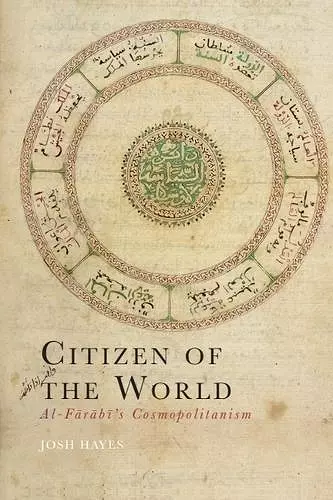Citizen of the World
Al-Fārābī’s Cosmopolitanism
Format:Hardback
Publisher:Edinburgh University Press
Published:30th Apr '25
£90.00
Available to order, but very limited on stock - if we have issues obtaining a copy, we will let you know.

The early Greek Cynic, Diogenes, when asked where he came from simply replied: kosmopolitēs - ‘I am a citizen of the world’. The ethical and political paradigm of cosmopolitanism is often exclusively attributed to the ancient schools of Cynicism and Stoicism. Cosmopolitanism is commonly assumed to have reached an impasse throughout the Middle Ages, only to resurface during the Enlightenment with the political philosophies of Hugo Grotius, Adam Smith, and Immanuel Kant. However, the political philosophy of Abū Naṣr al-Fārābī (870-950 CE), represents a promising avenue for the revival and expansion of cosmopolitanism. By harmonizing Plato and Aristotle with Neoplatonism and Islamic theology (kalām) in a radically innovative manner, al-Fārābī ambitiously proposes the existence of a political community extending across the entire inhabited world. This book demonstrates that the possibility and promise of al-Fārābī’s cosmopolitanism remains an enduring contribution to contemporary debates concerning the future of democracy and global political association.
Josh Hayes’s novel interpretation of al-Fārābī’s cosmopolitanism traces its Platonic-Aristotelian roots and ethical-political evolution within the early Islamic context. His discussion of the “cosmopolitan virtues” — Hospitality, Generosity, and Solidarity — brings to life the Farabian vision of a flourishing political community, where ethical and civic virtues unite citizens in the pursuit of happiness. A must-read for scholars of philosophy and political science, demonstrating the contemporary relevance of classical Islamic thought. -- Tamara Albertini, University of Hawai’i at Mānoa
ISBN: 9781399530545
Dimensions: unknown
Weight: unknown
224 pages